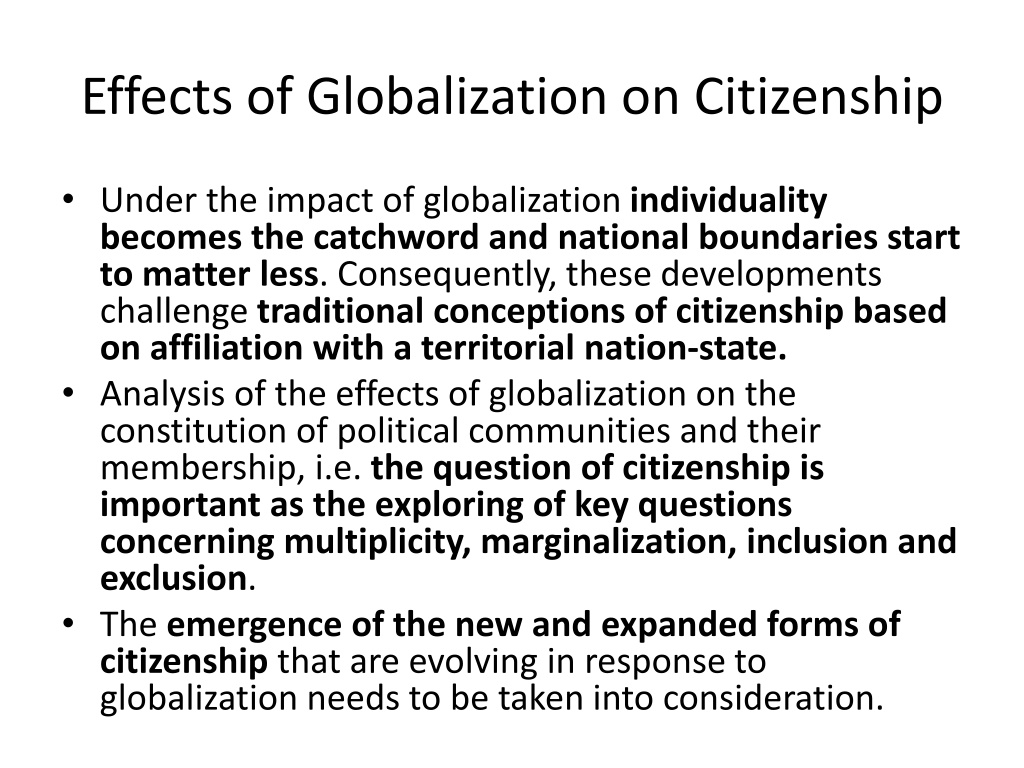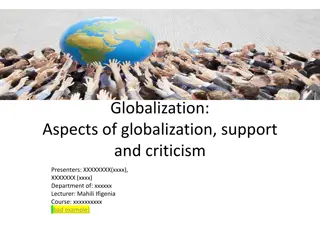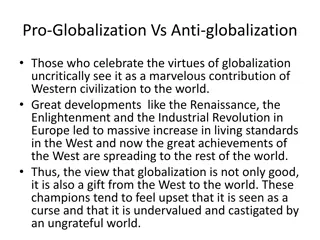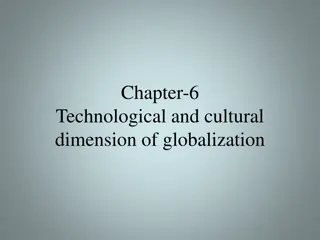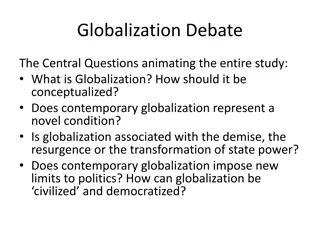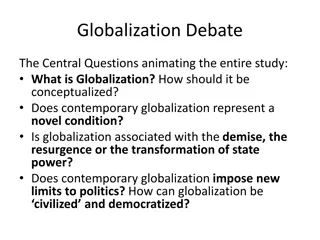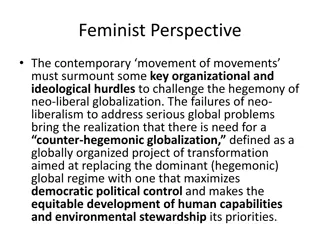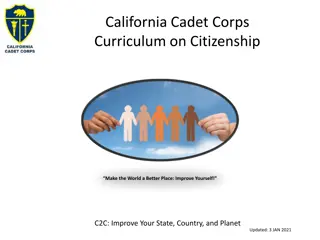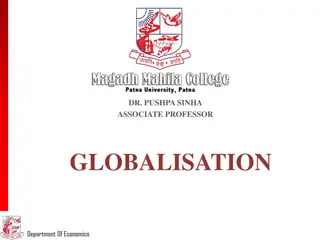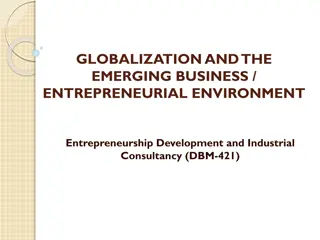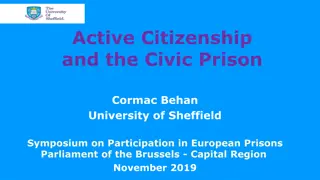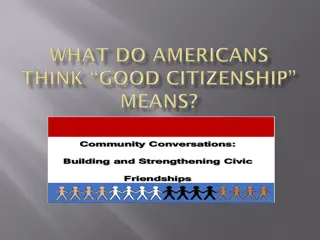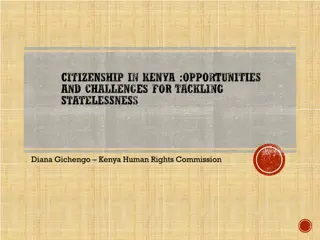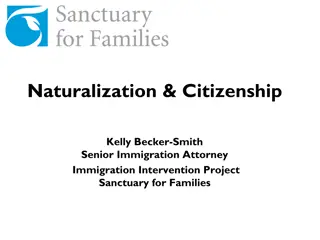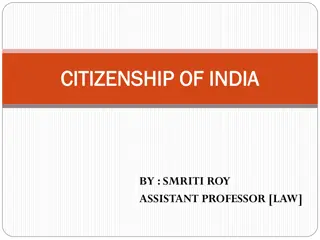Effects of Globalization on Citizenship and Contemporary Globalization
The impact of globalization challenges traditional notions of citizenship tied to nation-states, leading to new forms of citizenship evolving in response. Globalization questions themes of citizenship, identity, and democracy, deepening the interconnectedness of local, national, and global events. From the evolution of Keynesianism to the Washington Consensus, the shift towards neoliberalism marked the contemporary phase of globalization. Various processes like technological innovation, political ideologies, and environmental issues have contributed to the global interdependence of the modern world.
Uploaded on Oct 11, 2024 | 0 Views
Download Presentation

Please find below an Image/Link to download the presentation.
The content on the website is provided AS IS for your information and personal use only. It may not be sold, licensed, or shared on other websites without obtaining consent from the author. Download presentation by click this link. If you encounter any issues during the download, it is possible that the publisher has removed the file from their server.
E N D
Presentation Transcript
Effects of Globalization on Citizenship Under the impact of globalization individuality becomes the catchword and national boundaries start to matter less. Consequently, these developments challenge traditional conceptions of citizenship based on affiliation with a territorial nation-state. Analysis of the effects of globalization on the constitution of political communities and their membership, i.e. the question of citizenship is important as the exploring of key questions concerning multiplicity, marginalization, inclusion and exclusion. The emergence of the new and expanded forms of citizenship that are evolving in response to globalization needs to be taken into consideration.
Effects of Globalization on Citizenship (Contd.) Globalization has challenged the nation-state as the only source of authority over citizenship and democracy. It has systematically interrogated the themes surrounding modern citizenship-territoriality, identity, belongingness and allegiance. In this extremely complex and dynamic world globalization does not imply that the local and the national are subordinate to the global . Rather, it underlines the deepening as well as the broadening of the political process in the sense that local, national and global events constantly interact and result in systematic interdependencies.
From Keynesianism to Washington Consensus As a response to the Great Depression, Keynesianism proposed that the state should intervene in the economy to promote economic efficiency, political freedom and social justice. Largely based on Keynesianism, the welfare state became the predominant model in large part of the globe in the mid-twentieth century. But in the late 1970s the economic crisis and the disintegration of the Keynesian paradigm led to the adoption of free market policies guided by neo-liberalism. With this, the contemporary phase of globalization has begun.
From Keynesianism(Cont.) The Washington consensus became the underlying framework for contemporary (economic) globalization in the 1990s. Contemporary globalization is known as the intensive or deepening phase, in the sense that there is an intensification of the integration between different parts of the world.
Contemporary Globalization and its Consequences Scores of processes and developments in the second half of the twentieth century facilitated the emergence of this global interdependence, namely the cold war; the spread of international trade and the transnational character of modern business organizations; technological innovations, especially the information and communication revolution; politico-ideological factors, such as the spread of Western-liberal political values or liberal democracy due to the collapse of the socialist states; the emergence of Islam as a transnational political creed; and common political and environmental problems such as terrorism, acid rain, ozone depletion and global warming.
Beyond the Marshallian Citizenship Trilogy The Marshallian theory of citizenship has become highly inadequate in attending to the new categories- immigrants, guest workers, refugees and other mobile groups-that constitute a pivotal feature of the contemporary world. These new forms go beyond the Marshallian citizenship trilogy of civil, political and social rights, and entail mobility citizenship (concerned with the rights and responsibilities of visitors to other places and cultures), minority citizenship, cultural citizenship (involving the right to cultural participation), ecological citizenship (involving rights and responsibilities of the earth citizen), diasporic citizenship (concerned with the rights and duties of diasporas), and cyber citizenship (involving the rights and duties of netizens).
Beyond the Marshallian(Cont.) As against the Marshallian citizenship trilogy, organized around membership to the nation- state, these alternative conceptions could be considered the citizenship of flow (Urry, 2000), which are concerned with the causes and consequences of the flows of migrants, visitors, cultures and risks across national boundaries.
Citizenship in Economic Terms There has been significant change in the relationship between the citizen and the state in view of the fact that neo-liberalism as a public philosophy is based on the claim that the market is better than the state at distributing public services. Consequently, it marks a shift in emphasis from the public to the private and from the state to the market. Thus, it conceives of citizenship in economic terms; citizens are transformed into consumers, looking for the party or programme that promises to augment their market positions. In the words of Michael Walzer, they need the state but have no moral relation to it, or they simply do not develop any attachment to it.
Property Owners Given Primacy Over the Participatory Rights of Citizens As the neo-liberal model rejects the idea that citizenship confers a status independent of economic standing in a society, protection of the rights of property owners is given primacy over the participatory rights of citizens, both nationally and globally. This leads to a major shift away from public citizenship, directly provided by the nation-state and based on compulsory taxation, insurance and participation rights, to some kind of consumer citizenship, provided by many diverse institutions, nation-states, global organizations, NGOs, consumer organizations and the media.
Post-Keynesian Economic Policies As states adopt neo-liberal or market-friendly policies under pressure from the dynamics of global capital, they go for post-Keynesian economic policies- privatization and labour market deregulation, low public expenditure on social goods, and low levels of taxation. This has two major consequences for citizenship: i. First, a state cannot protect its citizens from the fluctuating effects of the global economy over which it does not have effective control.
Post-Keynesian Economic Policies (Cont.) ii. Second, Marshallian social rights are dismantled as the welfare state comes under increasing strain in the age of neo-liberalism. The inability of the state to ensure the social rights of its citizens creates new scales of inequality, and makes civil and political rights incapable of providing meaning to citizens lives. The above mentioned two factors have resulted in an erosion of state legitimacy or erosion of the committed adherence to or allegiance of its citizens, and a decline in social solidarity and citizenship.
Erosion of State Legitimacy These are manifested in increasing voting apathy, distrust of politicians, passivity and withdrawal into the private sphere, and the decline of the public sphere. The general feeling of being disconnected or rootless on the part of citizens produces a greater sensitivity to particularistic identities based on nationalism, regionalism, tribalism, etc. As neo-liberal economic globalization leads to an increase in inequality and insecurity within countries as well as between them, there is an intensification of globalization from below ,- resistance and political movements demanding inclusive citizenship (Kabeer, 2005) by challenging exclusionary practices and the way the voices of people are silenced.
Global Vs. Local Cross-border cultural flows are transforming the politics of identity. When people everywhere are exposed to the values of other cultures, geographically fixed national identities get increasingly eroded. Consequently, while there are some signs pointing towards the emergence of a global culture based on universal cultural symbols, there is also an awareness of difference vis- -vis the diversity in lifestyles and value orientations. Thus cultural globalization has a pluralizing impact on identity formation, creating and recreating a variety of new identities associated with gender, race, ecology, and others.
Global Civil Society and Cyberspace These new identities find concrete expression in global civil society and cyberspace. These two agents have emerged as alternative public spaces for citizen activity as the official public space has shrunk. The new public spaces have led to participatory citizenship spilling beyond state boundaries. Global civil society provides its citizens the required space for collective action in various forms such as unions, NGOs, ethnic associations, demonstrations and social movements (women s movement or gay liberation movement) and people s summits (like the World Social Forum).
Global Civil Society(Cont.) Global civil society and the Internet have contributed to the emergence of unbounded notions of citizenship. The Internet has greatly influenced political consciousness, and has created a specific identity netizen or a new discursive or interactive form of citizenship- cyber-citizenship. It is based on unmediated dialogue, information exchange and networking around the world, and thus challenges the idea of a state-centric world.
Global Civil Society (Cont.) It provides democratic space for the expression of alternative and contesting voices that transcend national boundaries (for instance through blogs, or communities on websites like facebook), as well as representational space for agencies to initiate debates on critical issues. Consequently, these debates form collectivities and forge new solidarities through online petitions, online signature campaigns and online mobilizations- e.g. Bakul Foundation, a non-profit organization in Orissa, which promotes voluntarism for community development. It has formed a common mind or thinking and forged mutual solidarity among people across the globe.
Virtual Migration, Virtual Communities and Horizontal Communication Blogs are reshaping the landscape of citizenship. New understandings, commonalities, frames of meaning, and thereby identities are formed through virtual migration and virtual communities, that is , without direct contact between people. Through the process of disintermediation, individuals and groups express themselves directly and not through representatives or intermediaries. The Internet creates horizontal communication links between citizens, and thus challenges existing hierarchies.
Virtual Migration, Virtual Communities (Cont.) Control over the means of communication is now in the hands of an increasing number of people, and political disintermediation and declining respect for representative institutions (due to their inability to deliver) are producing a critical citizenship , where citizens want to engage directly in public discourse, national as well as global. Thus, a great challenge for states is reconciling contemporary demands for direct participation and transparency with traditional representative democracy, based on secrecy and control of information.
